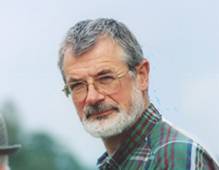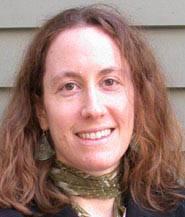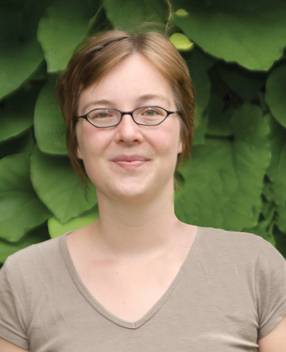Revised Problem Statement
Currently at UC Berkeley, ladder-rank faculty submit an annual paper report documenting their efforts and achievements for an academic year. These reports are an aggregation, distillation and reformatting of a large corpora of collected documents. For this reason, they are currently considered both necessary for review purposes but also tedious and time-consuming. Because these reports are paper-based; the data is not reusable. Further, data from previous years can not be inherited and must be reentered each time the report is completed.
Building an interface that could reduce the effort and cost of producing this report would be a major service to the faculty. One obvious design solution is to make the form electronic. This would allow comprehensive data, such as professional society memberships, publication data and awards, to be inherited from previous years. This could greatly reduce faculty effort to renter the data manually. Another potential design solution would apply input data to multiple reports/documents. Much of the data required in the Bio-Bib could also be applied to curriculum vitae, bibliographies, or on-line web pages. Were the data to be reused for multiple purposes, its cost could be diffused.
In addition to the problems of data entry and reuse, there also lies the challenge of customizing the interface. Although there is a standard form for all disciplines and departments, the fields in the report are generally geared towards scientific researchers. It puts emphasis on classic academic accomplishments such as journal articles and invited talks, and does not adequately capture the diversity of accomplishments such as art shows and software development. Also, the report does not recognize the varying types and levels of mentorship and student advising. Our goal is to create a system that recognizes the unique efforts and accomplishments of all users, while preserving a standard output that will be useful for University-wide reviews.
top of pageInterviews
In developing the interview schedule, we felt that it was important to understand three aspects the Bio-Bib report:
- the logistics of completing the report (obtaining the form, gathering information, and submitting the form)
- experience and satisfaction with the report (whether the form adequately captures achievements, problems completing the form, and pain-points)
- goals and usefulness (intended audience, reactions to the report being made public)
We also wanted to see how professors actually use the form, so we developed a list of four tasks that asked them to complete at the end of the interview.
After creating and revising the interview schedule, we identified four participants who agreed to discuss their experiences with the Bio-Bib report. We selected professors in both traditional research disciplines as well as those physically creating art. We also sought input on varying levels of tenure:
- (1) Full professor in the Department of Art Practice
- (2) Full professors in the Department of Psychology
- (1) Associate professor in the Department of Psychology
At least two group members were present at each interview, and each member led at least one interview. All sessions were videotaped. We spent 20-30 minutes after each interview debriefing and discussing the major themes that emerged.
top of pageAnalysis
After completing all interviews, we brainstormed about the motivations and goals of each professor. It became clear that instead of distinguishing our participants by comfort level and skill with computers, as originally proposed, our personas should be shaped by discipline and position on the tenure track.
top of pagePersonas
Our personas were created based on information collected during our project interviews. The older tenured professors had very different perceptions of the usefulness and function of the Bio-Bob than did the younger nontenured professors. Given the purpose of the Bio-Bib as a document used to evaluate faculty members for professional advancement, we decided to focus on three archetypal personae which reflect the three major tenure-track professor ranks: assistant, associate and full professor. We feel that this division was successful and adequately addressed the major points learned during data collection.
Mark Lund
"I don’t like things that aren’t functional" |
 |
Mark Lund is a 62-year old fully-tenured professor in the Chemistry Department at UC Berkeley. Mark has been married for 30 years to a counselor who works at Albany High School, and has 2 adult sons named John and Kyle. He also has 2 grandchildren through John: Lisa, who is 4 years old, and Joel, who is 7 years old. Last year, after taking a long overdue family vacation with his wife and grandchildren to Disney World, he realized just how much he would like to spend more time with them. Since then, he has been considering retirement.
He does not, however, plan to retire immediately. Mark specializes in environmental and physical chemistry, and is well regarded in the field. On average, he publishes 2 articles in peer-reviewed journals per year. Three years ago, he obtained a grant to work on a project related to carbon sequestration, but this grant ends in August of 2007. He is currently seeking funding to continue this line of research for a few more years in order to wrap up his research and make his last publication a major one – perhaps even in the prestigious journal Science.
Mentorship is extremely important to Mark, especially now that he is planning the end of his own research career. He runs a lab of 4 handpicked ambitious PhD students, and dedicates 3-5 hours each week meeting with his students and supervising their independent research projects. Although he is often asked to be a guest lecturer at other schools, he has tried to cut down on the number of speaking engagements because he feels that it detracts from the time he spends with his students and family. He hopes to groom his students to take over his research when he retires and thus leave a legacy in the scientific community.
Mark sees the Bio-bib as another example of institutional inefficiency at Berkeley. It is one more university requirement that takes time away from his research. He depends on the departmental secretary, Phyllis, to provide him with the paper documentation necessary to complete the form.
Goals:
- Obtain research funding.
- Nurture the development of his graduate students.
- Maintain his full tenure position at UC Berkeley, where he plans to retire.
- Complete the Bio-Bib with minimal time and effort.
Allison Randall
"Almost there!" |
 |
Allison Randall is a 37 year-old Associate Professor of Dramatic Arts at UC Berkeley. Her husband is an 39 year old editor for Sunset Magazine (a West-coast lifestyle publication), and travels frequently. With both of them approaching 40, they have recently decided that now is the time to finally start a family. Allison is adamant that she must secure a full professorship and have job security before they have their first child, so she begins to work on making herself a strong candidate. Although she used to accompany her husband on many of his trips, she has recently tried to cut back on travel time in order to focus on her professional activities.
Much of Allison’s time is spent working on a book about 19th century European playwrights. She has been writing this book for the last three years, and is finishing up the last chapters. Although she typically publishes about four articles a year, she has put article writing on hold in order to finish her first book. She hopes that the publication of this book will earn her a fully tenured position at Berkeley and solidify her national recognition within the Dramatic Arts community.
Allison’s other time commitments include overseeing the master students directing a student play at Berkeley.
“The Bio-bib doesn’t reflect me or what I do at all.”
Allison feels that the Bio-bib form does not fit the type of work that she does, especially the theatre work, but she is willing to put in extra time and effort to clearly illustrate her accomplishments. She is not intimidated by the form, and wants her professional efforts to be recognized.
Goals:
- Clearly illustrate her work over the last 3 years.
- Pursue validity of her accomplishments.
- Attain full professorship so she and her husband can begin having children.
Jennifer Williams-Ortiz
"The more you put in, the more you get out." |
 |
Jennifer Williams-Ortiz is a 29 year-old Assistant Professor in the Department of Cognitive Psychology, but also has a co-appointment in Linguistics. She has been at UC Berkeley for three years, and was hired at the same time as her husband, who is a 34 year-old Associate Professor in Linguistics.
Jennifer did a post-doc at the University of Michigan, and studies English language acquisition among Mexican American immigrants. Last year, she received a grant from the National Institutes of Health to set up a lab in the department. She is eager to attract the best graduate students to her lab and start establishing her work. Jennifer is therefore very active within the department and frequently attends all of the department mixers.
Jennifer is up for her 2nd review in the Psychology Department, and is eager to impress her colleagues. So far she has published one article in a peer-reviewed journal and hopes that the future productivity of her lab will propel her steadily along the tenure track.
Outside of work, Jennifer enjoys playing volleyball with friends, camping and knitting an occasional scarf.
Goals:
- Set the stage for pursuing a successful career in Psychology and a tenure track.
- Build credibility among the other professors in her department.
- Pursue visibility and recognition among the graduate students in her department so that she can grow her lab
Tasks
Bio-Bib requires all the below mentioned tasks. However, the motivations and the goals of those submitting the report will impact what degree of effort is expended on each task. The following lists notes the level effort by each of the aforementioned personae.
H = Heavy; M = Moderate; L = Low
| Task Effort Levels | Jennifer Williams-Ortiz |
Allison Randall |
Mark Lund |
| predecessor tasks | |||
| store physical report data | H |
H |
L |
| store electronic report data | H |
L |
H |
bio-bibliography tasks
|
|||
| interpret report questions | H |
M |
L |
| filter through stored data | H |
H |
L |
| assess any missing data | M |
H |
L |
| request any missing data | M |
H |
L |
| track data requests | M |
M |
L |
| assess report deadline | H |
H |
L |
| input basic data into report | M |
H |
L |
| expound on basic data | H |
H |
L |
| format report | H |
H |
L |
| submit report | M |
M |
L |
parallel tasks
|
|||
| maintain cv/resume | M |
M |
M |
| maintain bibliography/portfolio | L |
M |
H |
Work Distribution
Dondrea |
Eunice |
Rich |
|
| Interviews | 40% |
30% |
30% |
| Personas | 30% |
40% |
30% |
| Tasks & Goals | 30% |
30% |
40% |
| Project Web Site | 0% |
0% |
100% |



 Assignment 2
Assignment 2